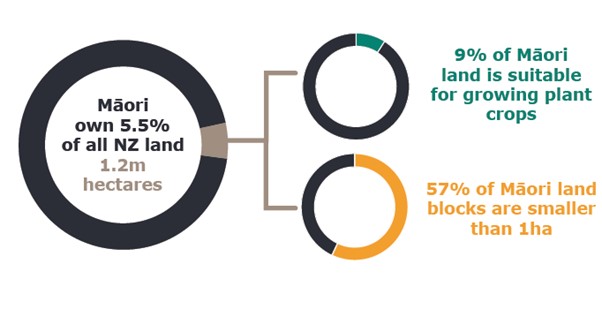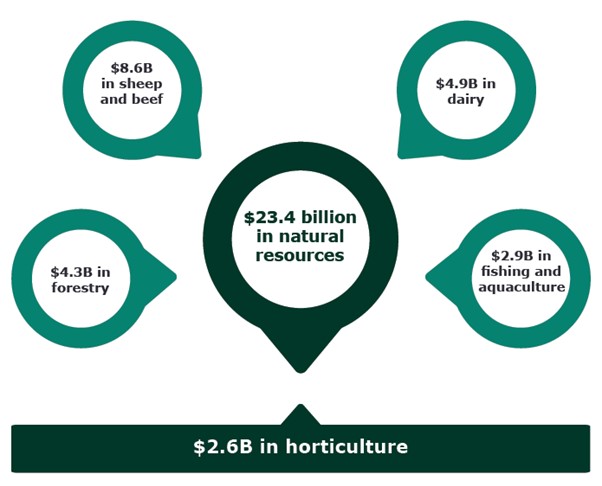Plant-based foods have exploded in popularity in response to shifting consumer values for health, sustainability, and animal welfare. Creating plant-based products may be an appealing venture to Māori businesses. They could deliver to consumer desires while addressing human and planetary wellbeing. Making sustainable and healthy foods that tell Māori stories, and/or alignment with tikanga Māori (Māori protocols) could increase the product value. However, there are few high-value plant-based foods made by Māori. Understanding why that is will contribute to Māori success in future foods.
Tikanga: knowledge, values, and practices that inform culturally appropriate behaviour. Food can align with tikanga Māori if it is produced in a way that is aligned to cultural values. Farming sustainably and ensuring the wellbeing of land and water is an example of how food production could align to tikanga Māori.
Land is vital to Māori prosperity
Of the 1.2m hectares under Māori ownership, 9% is suitable for growing plant crops.
Many land titles are in small blocks. These can be highly productive and have a lot of potential. However, it can be difficult to grow crops at scale across many small blocks.

Māori land is the foundation of Māori assets:

Māori have less assets in horticulture compared to other natural resource industries. There may be opportunities for Māori to diversify their assets into plant crops. However, new horticulture ventures can require significant investment over lengthy periods. Ventures for plant-based food products may also look risky because it is unclear whether consumers would accept these new products.
The future foods frontier is an exciting, if uncertain, space for Māori businesses
So, there are various challenges in making a successful plant-based food. If Māori can overcome these, they may be able to offer unique products. Creating foods in a way that aligns with Māori values could add distinct value to products. If consumers knew that a product had been made in a way that aligns to tikanga Māori, they may be more likely to purchase it.
This is crucial in an increasingly crowded market. Collaboration among Māori and with non-Māori will be key to success at the future foods frontier. Sharing knowledge about the opportunities and challenges in this space will unlock pathways forward.
Research by the Future Foods Catalyst team will scope further opportunities and challenges to enable Māori businesses to lead plant-based food developments in Aotearoa New Zealand. Interviews with Māori industry players in 2021 and 2022 will highlight these.
Summer Wright, 14 December 2021
